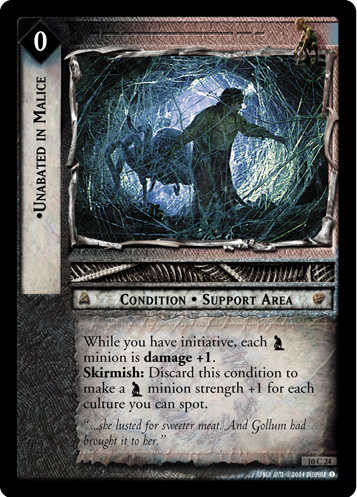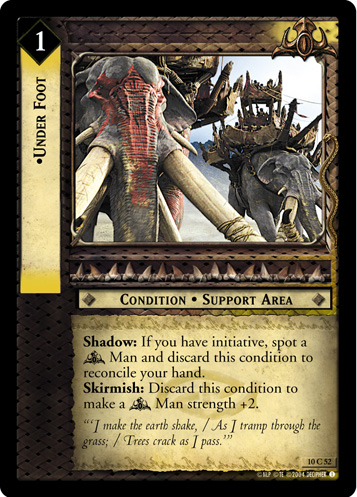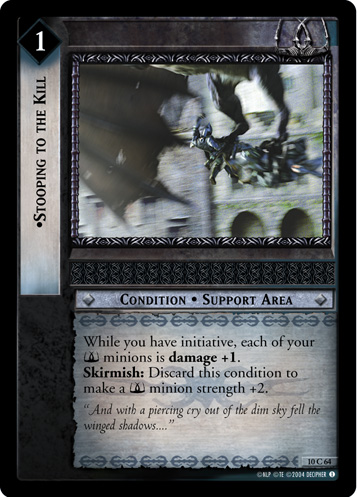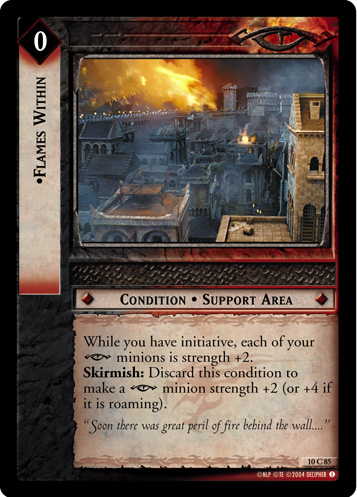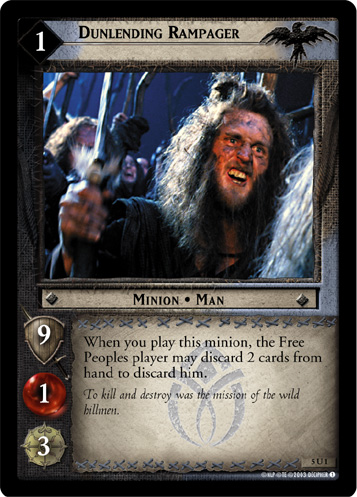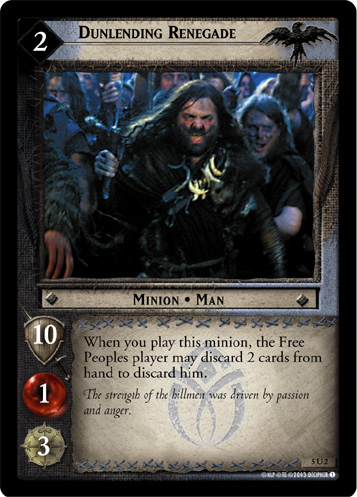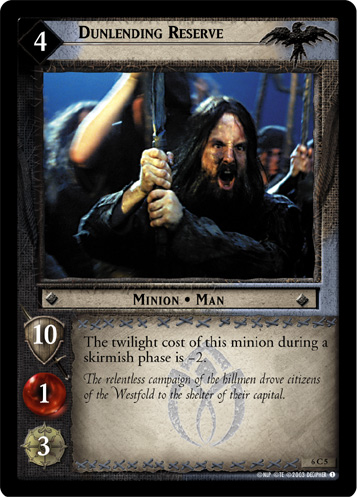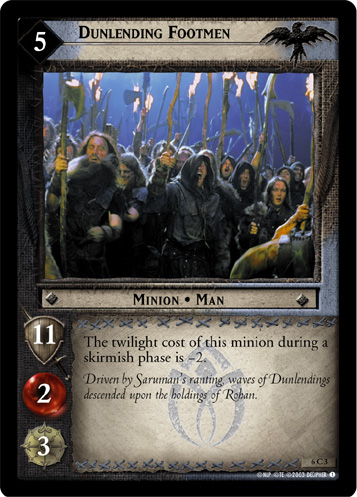Cycle
For the in-game concept of controlling the flow of cards through a player's hand, see Cycling
A cycle (noun only) can refer to a series of cards, either within a culture or across multiple cultures, with thematically-linked mechanical effects. Most cycles occur within the same set, though some span across a block and a few are across blocks. Check out this Decipher blog post on cycles for some insight on the design process for cycles.
Perhaps the most infamous cycle is Mount Doom's unique Free Peoples conditions that trigger when the player loses Initiative:
- Memories of Darkness (10U2)
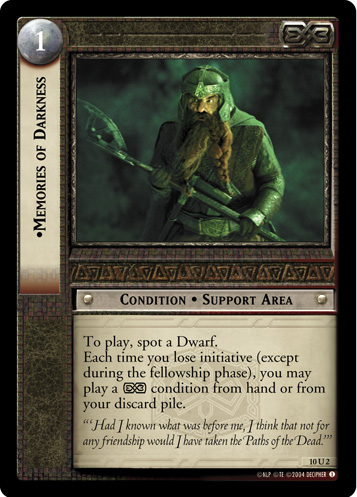
- Glimpse of Fate (10U12)
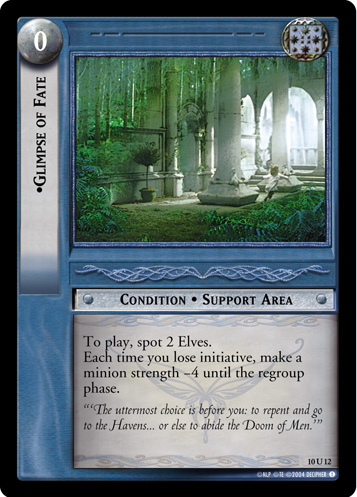
- Brooding on Tomorrow (10U15)
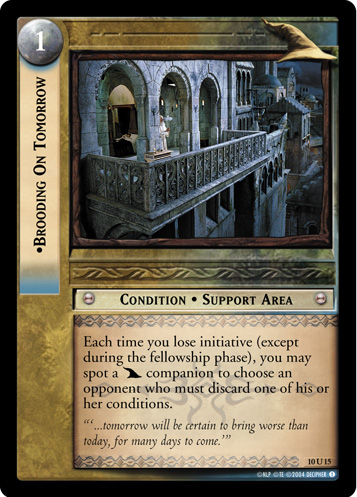
- Hardy Garrison (10U33)
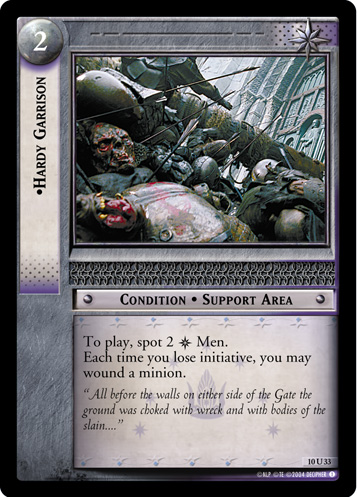
- Fell Deeds Awake (10U73)
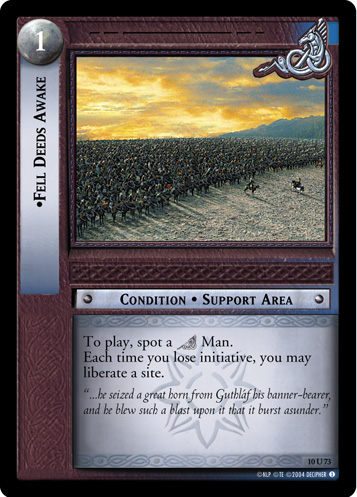
- A Light in His Mind (10U108)
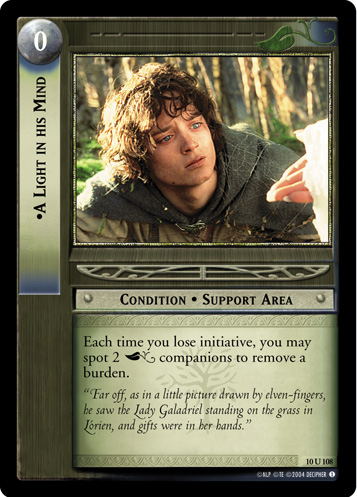
These are opposed by a cycle of unique Shadow conditions that provide a benefit when Shadow player has initiative or can be discarded for a pump in a skirmish:
Suffered Much Loss (10U35)
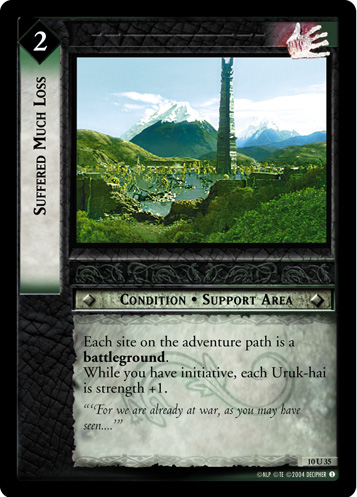 is closely related, though a bit of an odd card out (in more ways than one -- it is the only
is closely related, though a bit of an odd card out (in more ways than one -- it is the only Isengard card in King block).
Occasionally, separate cycles will overlap with one another. Dunland has a cycle of relatively cheap minions that the Free Peoples player has an opportunity to discard:
Along with a cycle that plays minions more cheaply in a skirmish phase:
The pinnacle of both is Wild Men of the Hills (5R4)
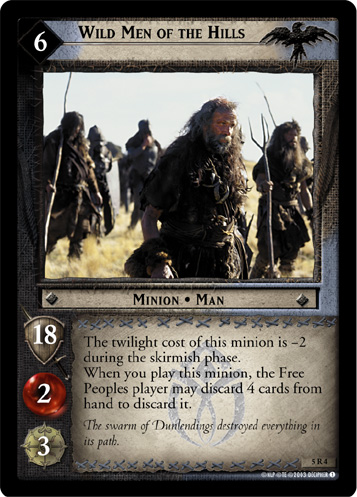 : a minion stronger than The Balrog at half the price (cheaper still if played in a skirmish), though the Free Peoples may be able to discard it immediately. Notice that it was released in Battle of Helm's Deep while Dunlending Reserve and Dunlending Footmen were released in Ents of Fangorn, an example of a cycle across sets in a block.
: a minion stronger than The Balrog at half the price (cheaper still if played in a skirmish), though the Free Peoples may be able to discard it immediately. Notice that it was released in Battle of Helm's Deep while Dunlending Reserve and Dunlending Footmen were released in Ents of Fangorn, an example of a cycle across sets in a block.
Cycles across blocks are less common and often more loosely related, though they still occur. Hobbit Intuition (1C296)
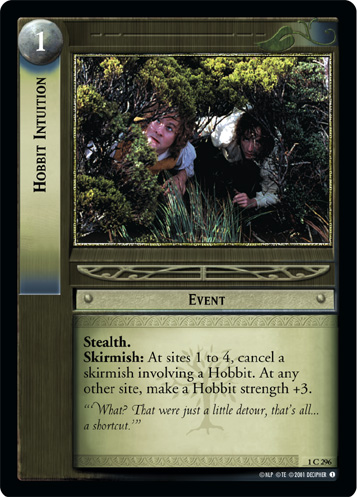 / Hobbit Stealth (1C298)
/ Hobbit Stealth (1C298)
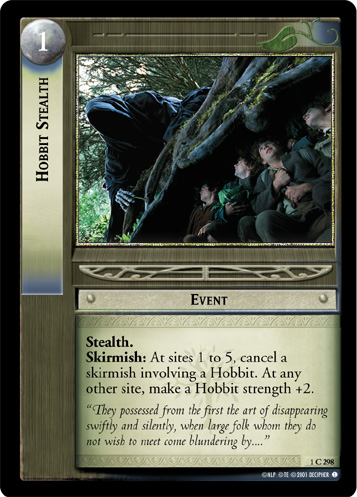 in Fellowship block and Severed His Bonds (4C319)
in Fellowship block and Severed His Bonds (4C319)
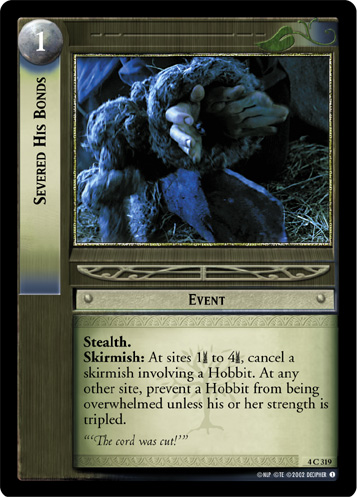 / Swiftly and Softly (4C321)
/ Swiftly and Softly (4C321)
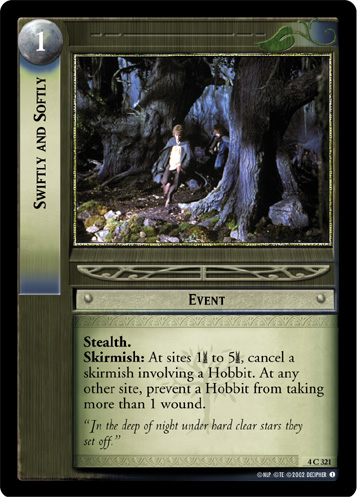 in Towers is the most obvious example of this.
in Towers is the most obvious example of this.
